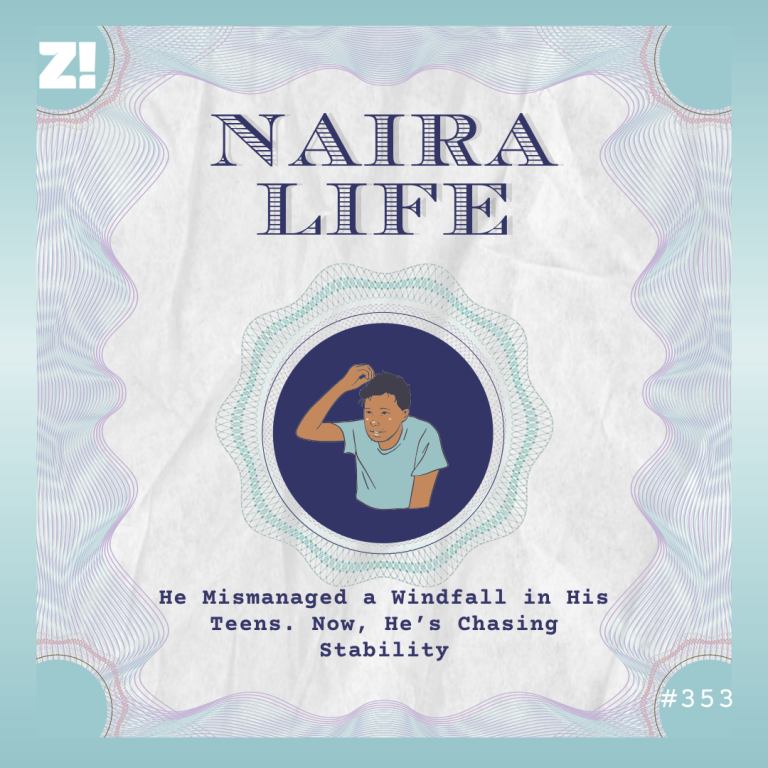If someone had told me interacting with market women would be the biggest culture shock I’d experience when I relocated to Ado-Ekiti, I’d have laughed in their face.
I’d lived in Lagos — a mostly Yoruba-speaking city like Ado-Ekiti — for more than two decades before love uprooted me from everything I’d grown to know when I had to leave after my wedding.
I assumed settling into my new environment wouldn’t be too difficult. You know how they say, “Anyone who survives in Lagos can survive anywhere”, right? I’m surviving, but boy, is it more different than I imagined.
I moved here in December 2021, fresh from my honeymoon, ready to relax and be taken care of. You see, I’d been told Ado-Ekiti is calmer than what I’m used to, and I convinced myself I was ready to leave the hustle and bustle of Lagos behind.
It started great, too. Contrary to what I’d expect in Lagos, the people in Ado-Ekiti aren’t determined to catch you slacking. They’re laid-back. No one tries to snatch your phone or bag just because you’re holding it on the side of the road, and most people won’t even pay attention to your backpack. I had to unlearn the Lagos-induced instinct to grip my phone and belongings tight at all times while assuming everyone around me was a potential pickpocket.
But then I quickly realised being laid-back isn’t always dodo and sunshine. The first time I ventured into Ọjà Ọba, the king’s market, alone, armed with my best impression of my Nigerian mother and ready to beat down all the prices, I met a shocker.
If you’ve been to any Nigerian market, you know it’s an unwritten rule that the first price the seller gives you is never the last price (the price you eventually pay). And according to Haggling 101 by Nigerian mothers, you must start the haggling process by cutting the initial price by at least 50% and then work your way up from there. If the seller refuses to beat down the price substantially, you walk away, silently hoping they call you back. Most of the time, you will be called back.
That method doesn’t work in Ado-Ekiti, and I only got the memo by the time I’d walked around the entire Ọjà Ọba. First of all, the first price is almost always the last price, and I’m not even kidding. If a market woman tells you a piece of ponmo costs ₦500, don’t even bother “pricing” it, that’s the last price. You may get lucky and find one willing to remove ₦50 or ₦100 off the price, but that’s as far as it’ll ever go.
Secondly, these market women no send you, for lack of better English. In Lagos, the seller may try to cajole you to part ways with your money, and sometimes even tell you half-truths like, “My sister, na only ₦50 be my gain for this market”. But here, they know your options are few. The prices are basically standard throughout the market, and you’d have to travel a considerable distance to find another major market. So, just swallow your pride and buy.
If you’re thinking, “But foodstuff should be cheaper in Ado-Ekiti”. Please, stop it, respectfully.
I believed the same thing when I came here. I figured since a large part of the population are farmers, food should be much cheaper here. It’s not. I can even say food is cheaper in Lagos. The only way you’d live here and enjoy cheap food, or afford to eat pounded yam — the city’s famous staple — every hour of every day is if you’re growing it out of your own farm. For the rest of us without green fingers, we’re left to the whims of IDGAF market women.
Also read: All the Many Different Ways You Can Get Free Food in This Economy
It’s been eleven months since I moved here, and I don’t see myself getting used to how the market works anytime soon. You know one other thing I still haven’t gotten used to? Having to take okada to get to any darn place.
I don’t know if I should also attribute this to the laid-back nature of the people, but alternative means of transportation, like cabs and keke are so few and far between within streets and not-so-major roads that you have to use an okada, whether you like it or not.
For someone who absolutely hates motorcycles — I basically hold my breath every time I have to take one — I always wonder if I need to just come to terms with the constant torture. Does it mean no one in Ado-Ekiti has ever woken up and considered the large market for transportation? Over 500,000 people live here for chrissakes! I may never get satisfactory answers to these questions, but it won’t stop me from constantly wondering.
My okada misgivings and beef with the market women aside, I’ve come to love my laid-back Ado-Ekiti. Sure, most parts of the town go to sleep at 8 p.m. and there’s zero nightlife and minimal recreation options, it’s where the love of my life is, and I’ll be here for as long as he stays.
It doesn’t hurt that traffic, Lagos conductors and the odd stolen-penis gist are now a thing of the past. I wouldn’t change a thing.
You’ll like: A Zikoko Guide: How to Steal Without Getting Caught




